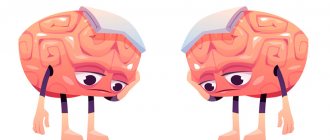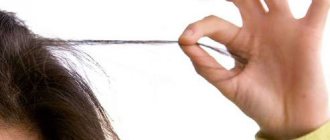For a person with shopaholism, going to a store or choosing a product on an online platform becomes both relaxation, entertainment, and a way to fill their life with meaning.
Despite the fact that oniomania (shopaholism) is presented in the media as a phenomenon that arose only in the last years of “unbridled consumption,” it was noticed and described at the end of the 19th century by one of the classics of psychiatry, Emil Kraepelin. This doctor of German origin, together with his Swiss colleague Eugen Bleuler, analyzed oniomania and identified its characteristic symptoms.
It should be noted that shopaholism is not recognized as a separate nosological unit (disease). There is ongoing debate in the academic community about this issue. Some experts believe that a pronounced passion for shopping should be classified in section F63 of the International Classification of Diseases, Tenth Revision - ICD-10 (other behavioral disorders associated with an uncontrollable urge to act). Other researchers are inclined to believe that shopaholism is one of the symptoms that masks any mental disorder. Probably, others are right who consider shopaholism to be a disorder of heterogeneous origin. It can be relaxation and entertainment, and a pathology of desires, as well as a manifestation of various mental disorders.
There is an opinion among psychologists that shopaholism is one of the subconscious variants of compensatory behavior, when a person, through a purchase, tries to compensate for something that he lacks.
Shopaholism (oniomania), of course, is less dangerous than mental disorders such as schizophrenia, bipolar disorder, organic brain damage, etc. But the statistics of “involvement” look ominous: according to various studies, up to 10% of the population suffer from uncontrollable shopping cravings .
Content:
- Oniomania is a disease that is not to be trifled with
- Causes of the violation
- What are the signs by which you can recognize a shopaholic?
- How to deal with oniomania
Shopaholism is a diagnosis that psychotherapists and psychologists increasingly have to contend with. Today it is no longer considered a whim of the rich. Experts are sounding the alarm - every year the number of people who need to undergo treatment for shopping addiction is increasing.
This problem even has its own medical name - oniomania. Let's look at how to get rid of this disorder and what it is. Is it really necessary to treat it?
Consequences of shopaholism
The unbridled passion for acquiring unnecessary goods can have negative consequences if this phenomenon becomes more and more pronounced.
- shopaholism hits the wallet the hardest - unjustified purchases can devastate the family budget;
- awareness of the unreasonableness of spending leads to constant self-recrimination, and the inability to control oneself leads to the development of subdepressive states and other disorders, including somatic and neurotic;
— a shopaholic almost inevitably has conflicts with loved ones and all those people with whom he shares responsibility for material well-being.
Oniomania is a disease that is not to be trifled with
It would seem that there is nothing scary in the desire to spend money and buy something regularly. But this is only at first glance. It is important not to confuse real psychological addiction with the love of shopping - these are two completely different things.
Today, shopping addiction is included in the list of the International Classification of Diseases. She is recognized as having a mental disorder. People who experience the symptoms of this disorder exhibit the same painful symptoms as alcoholics, drug addicts, and substance abusers.
For example, if a patient is deprived of the opportunity to buy something, he begins to behave aggressively and cannot concentrate even on the simplest work. He is angry that he was interrupted. He may lose his appetite and experience insomnia. Headaches often occur. All these are symptoms of a kind of withdrawal.
If he acquires something, even an absolutely unnecessary thing, he immediately experiences a pronounced feeling of euphoria, relaxes, becomes sociable, cheerful, and full of energy. He can now take care of his direct responsibilities and forget about shopping for a while.
Why you should overcome your addiction to unnecessary spending
Nowadays, surrounded by bags with logos of fashion brands, you can’t see beyond your nose. Remember what time of year it is now. Walk through the park, stepping on the yellow leaves that rustle so pleasantly under your soles. After all, feeding the ducks in the pond will bring joy to wonderful creatures. Pay attention to the songs of street musicians; they create the magical atmosphere of the city.
But this is all true happiness!
After all, life is like a flea market: who knows when real treasures will turn up.
movie "Shopaholic"
Nature and the environment help us cope with all the difficulties that fate throws at us.
Causes of the violation
Oniomania has been studied little in Russia, so domestic doctors know more about it from the works of their foreign colleagues. The latter concluded that an irresistible passion for shopping is the result of:
- difficulties in interpersonal relationships;
- prolonged loneliness;
- severe stress;
- receiving negative emotions;
- inadequately low self-esteem.
It is especially dangerous if a person is prone to addictive behavior. Then, if any of the above reasons are present, his chances of becoming an oniomaniac increase significantly.
Shopaholism often occurs against the background of prolonged depression, manic disorder, alcoholism, and drug addiction. Psychologists have noticed that all shopaholics have the following character traits:
- tendency to trust unfamiliar people;
- internal isolation;
- low level of stress resistance;
- lack of self-confidence;
- inability to defend one's point of view;
- high level of anxiety;
- tendency to aggressive behavior;
- negativism;
- devaluation of one's own achievements.
Symptoms
The fact that you spend money on new things, wanting to look beautiful and well-groomed, does not mean that you have an addiction. The disease should only be assumed under serious circumstances that affect the financial situation and lifestyle in general. Therefore, before diagnosing yourself, mark those statements that you think apply to you.
Symptoms of shopaholism:
constant expenses that do not fit into the budget; systematic unplanned purchases; search for sales and discounts; keeping silent about your addiction; the desire to cheer up with shopping; depressed state from lack of money; reproaches from loved ones about excessive waste; availability of credits and loans; feeling of shame in front of relatives and friends; your hands are itching to spend the money in your wallet; Buying unnecessary things.
If you agree with four or more statements, then you should go to a consultation with a psychologist and share your problem. Otherwise, you risk losing not only your financial well-being, but also your family and friends.
What are the signs by which you can recognize a shopaholic?
Before a diagnosis is made, the patient is examined. He is asked to undergo simple psychological tests. During them, you need to answer various questions without thinking. Oniomania is considered confirmed if, during the examination, the psychologist finds out that the patient:
- feels unhappy if he doesn’t buy anything for a long time;
- constantly acquires things that he does not use at all in the future;
- makes purchases spontaneously, does not know how to plan his spending;
- turned his house into a pile of rubbish;
- very easily persuaded by sellers to buy something;
- constantly thinks about shopping, and these thoughts prevent him from communicating with others and working;
- spends a lot of money on a modest salary, constantly borrows money to buy something.
While shopping, oniomaniacs cannot keep track of time. If they promise to return in an hour, they will come home in two, or even four hours. At the same time, they won’t even notice that so much time has passed. This can be explained by the fact that while shopping they experience strong emotional satisfaction, which makes them forget about obligations and important matters.
Also, patients very often quarrel with their loved ones who do not share their passion for shopping. Relatives are trying to bring the addict back to earth, explaining to him that he is wasting huge amounts of money in vain. All these arguments make the patient angry. He is not able to adequately respond to such comments, so he tries to minimize communication with those who teach him about life.
Many oniomaniacs even keep calendars in which they mark the days of sales and new arrivals of goods. On social networks, they subscribe to the pages of different shopping centers in their city to keep abreast of all upcoming events.
In fact, it is difficult to confuse a shopping addict with a healthy person who simply loves to go shopping from time to time. The latter spends money wisely and plans his expenses wisely. He does not behave impulsively in shopping centers and does not quarrel with his family over the purchase of unnecessary things. Oniomaniacs live by shopping. Almost nothing else interests them in life.
Sellers of happiness
Trading companies, in particular, bear a significant share of responsibility for the growing number of “shopping addicts.” Shops are turning into entertainment centers where everyone, young and old, has something to do. You can enter there in the morning and leave at night. Pressure is also exerted by aggressive advertising, which is difficult even for adults to resist, let alone children and teenagers. Moreover, advertising strategies for promoting goods today are specially developed taking into account human psychology. Of course, this effect is imaginary. Advertising slogans put pressure on the delicate strings of the soul: “After all, you deserve it!”, “They will envy you!”, “I can afford it”... Manufacturers today are not selling a product, but a dream of happiness, love, respect, which each of us needs .
It's hard to imagine a woman indifferent to fashionable new things. After all, the desire to please the fair sex is in the blood. But sometimes a woman’s natural penchant for dressing up goes beyond all boundaries. And there are reasons for this. If 5-6 centuries ago fashion changed no more than a couple of times a century, today this happens at least twice a year, and collections in stores are updated even more often. How can I resist here?
How to deal with oniomania
Addiction is treated comprehensively. The patient is selected medications and offered to undergo a course of psychotherapy. Mild psychotropic and antidepressants help improve a person’s mental state. During psychotherapy, programs are used to help develop a healthy attitude towards shopping.
The addict is taught the skills of self-control and switching attention, and is offered ready-made schemes for correct behavior in stores. The psychologist tells the client about various tricks that help not to open the wallet in vain. Work can be carried out individually or as part of psychotherapeutic groups. Both options allow you to achieve the desired results, but ideally they should be combined or alternated.
The patient must learn to control his thoughts, emotions, and suppress unnecessary emotional impulses. It would be good if, already during treatment, he starts going to stores only with a list of things to buy, stops deliberately visiting sales and taking advantage of various promotional conditions, and stops carefully studying advertising signs.
Shopaholism can be treated quite easily and quickly if the addict realizes that he has this problem. Unfortunately, doctors cannot help a person who refuses therapy. Work can only be carried out on a voluntary basis.
The text was checked by expert doctors: Head of the socio-psychological service of the Alkoklinik MC, psychologist Yu.P. Baranova, L.A. Serova, a psychiatrist-narcologist.
CAN'T FIND THE ANSWER?
Consult a specialist
Or call: +7 (495) 798-30-80
Call! We work around the clock!
Treatment of shopaholism
Actually, it is impossible to talk about the need to treat a person suffering from shopaholism until it has been established that this is a manifestation of some pathology.
Moreover, it is not always useful to get rid of the skill of compensating for your disappointment or rewarding yourself for success with a purchase. It is necessary to fight shopaholism only when it interferes with your life, and not after the caustic remarks of ill-wishers.
First of all, it is necessary to analyze the reasons why a person makes unnecessary purchases. If this is due to the need to calm down or restore emotional balance, but is burdensome for the budget, you need to look for less expensive ways - on your own or with a psychologist.
If unjustified purchases are a manifestation of a disease, then this disorder can only be dealt with together with a psychiatrist. Those disorders for which shopaholism may be a symptom are successfully treated.
We constantly detect plagiarism on our materials without providing a clickable follow link to them. In this case, without warning, we turn to Google DMCA , which leads to pessimization of the plagiarist. On the contrary, we welcome the popularization of our materials, but with the obligatory active follow link to this page psyhosoma.com/shopogolizm-bolezn-ili-privychka/ .











